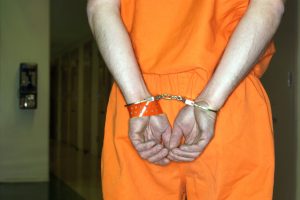On January 26, 2017, a Suffolk County judge announced the reopening of the Juvenile Drug Treatment Court in Central Islip. Several years ago, many had deemed the drug treatment courts for juveniles to be a success. However, due to lack of state funding, these drug treatment courts became obsolete in Suffolk County, while drug treatment courts for adults remained. The goal of the juvenile drug treatment court is to reduce substance abuse and non-violent behaviors among the youth who have become involved in the family court system.

Up until about five years ago, drug treatment courts for juveniles were more common. Once the adult opiate epidemic hit Suffolk County, the local government shifted its resources to family treatment court to address the issue. The drug treatment courts for juveniles will be run similarly to other specialty courts, where the judge will handle between 15 to 20 cases in addition to their regular cases. The specialty court will convene weekly.
Only teenagers 18 years old or younger who have committed a minor offense, such as possession of a controlled substance or loitering, can qualify for the juvenile drug treatment court. The intense program utilizes a team approach of a judge, probation officers, drug counselors, therapists, and parents or guardians to work with the juvenile. The juvenile drug treatment court includes group and individual therapy sessions, drug counseling, contact with the minor’s teachers at school, drug testing, and part-time job placement if their academic performance is in good standing. Additionally, the juvenile and parent or guardian must appear in court once a week for two to three months.
Each juvenile is assigned a probation officer who monitors their day-to-day progress, attends the weekly court appearances and provides recommendations to the judge. The judge will consult with the members of the team prior to meeting with the juvenile at his or her court appearance. Depending on the juvenile’s progress, the judge will then provide encouragement, a warning, a reprimand, or, in some cases, will send the minor back to the regular juvenile calendar.
The benefit of participating in the program is that, if it is successfully completed, the charges against the juvenile are dropped and erased from their record. Participation in the program may also save the juvenile from the debilitating effects of adult drug use such as incarceration and death from overdose. According to the U.S. Department of Health and Human Services, most juveniles complete the Drug Treatment Court successfully and are less likely to relapse than those placed in an inpatient drug program. However, continuous dedication and commitment by the juvenile and parents or guardians are key to successful completion. Parents, guardians, and grandparents play a vital role in the life of a young person in order to help keep them from being exposed to crime, drugs, and gangs.
Those who have been arrested by law enforcement for possession of a drug that is illegal or a legal drug without a prescription can face serious criminal charges. A New York criminal defense lawyer who is experienced in handling drug crime matters can advise you of your legal rights and will fight for your best interests in court. If you or your loved one has been arrested, call the Suffolk County Criminal Defense Attorneys at McGuire and Peláez at (631) 348-1702.



